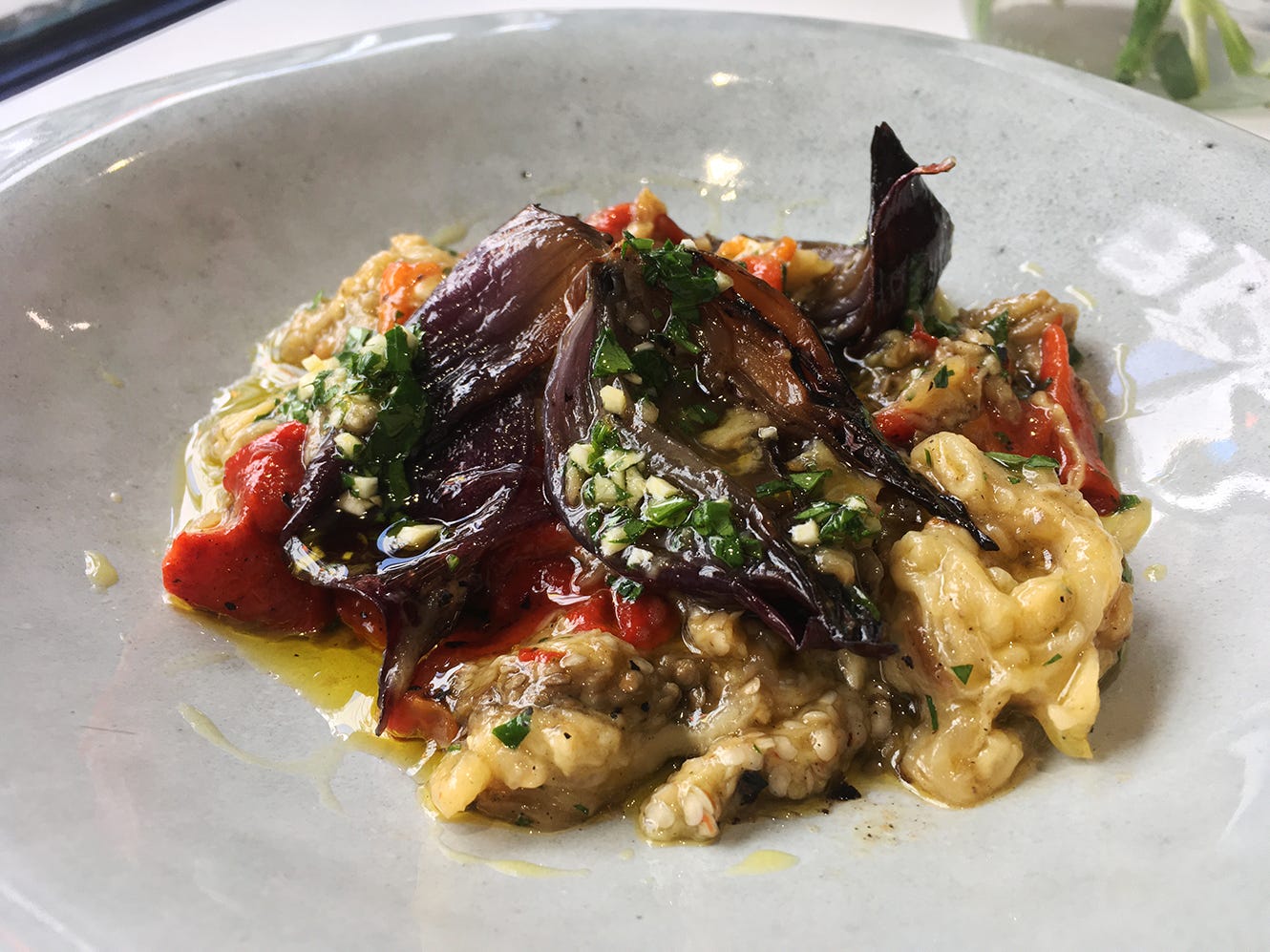The Cheap Street take on a traditional Catalan peasant dish [WFJ #16]
The second in a series celebrating Frome’s unmissable drinks, dishes, and other foods
If you were a Catalonian shepherd back in the day – tending to your flock up in the Pyrenees – chances are your lunch involved striking up a fire, torching bell peppers and aubergine over the flames, and leaving them to cook down nice and slow over the coals.
That’s as far as legend has it, anyway – a legend that became the dish known as escalivada, and the legend that has been transported from the mountains of Catalonia to the molehill that is Cheap Street, thanks to Marc Brunet Pascual. “You can use just peppers but traditionally they’d use peppers and aubergine,” he says. “We think it works really well all roasted together.”
But Marc’s deli and tapas restaurant Lo Rapitenc does do things slightly differently. Derived from the word escalivar (which in Catalan means to cook in ashes or over a grill), escalivada traditionally involves blistering the veg over hot embers to lend the flesh some smokiness, then peeling the skin, before slicing the veg and leaving it to cook down with garlic and herbs over several hours.
“My mum would always have a tupperware of escalivada in the fridge,” says Marc. “My granny had a big fireplace and she’d roast them on a stick. And put it in the oven, and the oven was really slow. By the end of the day, [the veg] would just, like, melt. That's the traditional way of doing [escalivada], but in the restaurant, obviously the preparation needs to be quicker, because we don't have six hours. We burn the outside on the hob and finish it in the oven as low as we can.”

Olive oil is another integral component of the ensemble and, like with any dish with few ingredients, each one has to be as good as you can find it. “We use oil from a special variety of olives called Morruda, which don’t grow in too many areas in Spain,” says Marc. Not only do these olives yield a fruity and spicy oil, “They make it 20 kilometres from my hometown,” he says.
More specifically, Marc’s originally from La Ràpita, a harbour town between Barcelona and Valencia. To describe someone as from La Ràpita, you’d say they are rapitenc or rapitenca, which – you guessed it – does a lot to explain the restaurant’s name.1 “Lo is a really distinctive way of saying where I'm from,” Marc says. “Because the Catalan from school textbooks the pronoun is not ‘lo’ – it's ‘el’. Down in the south we're really proud of using it, because it's a unique characteristic of our dialect.”2
Tradition is important to Catalans like Marc – favourites like jamon iberico, patatas bravas, croquetas, and Padron peppers appear on Lo Rapitenc’s menu, though Marc is okay to admit he bends the rules every now and then. “We've got pan con tomate on the menu,” he says, referring to the Spanish staple of grilled bread with tomato, garlic, olive oil, and salt. “But I'm a big fan of boquerones, which are white anchovies. One of the ways we have the pan con tomate is with two boquerones on top. So we try to add a bit of our own touch on the traditional.”
Even if Lo Rapitenc’s menu isn’t ultra traditional to a Spanish native, it’s a hell of a far sight from a branch of Tapas Revolution. But many new visitors, it seems, haven’t quite cottoned on to that. “We have people coming in thinking 90 percent of our dishes are made with bread and everything is fried,” says Marc. Some even, apparently, walk in to what they still think is Sagebury Cheese – the shop that was at 21 Cheap Street before Lo Rapitenc opened in October last year.
Marc says most of the time they’re pleasantly surprised to see what it’s become, at least. And he himself is pleasantly surprised “to see people who've never been to Spain trying tapas for the first time, and then coming back every other week.” The restaurant gets the odd fan from completely the other end of the spectrum too. “I've had Catalans and Spanish people coming down from Bristol. A lady came from Devon – an hour and a half drive – just to have some Tarta de Santiago when we made them.”
Yes, build it and they will come. But it seems if you cook it, serve it, and take pride in it, they’ll find even the more reason to.
La Ràpita used to be called Sant Carles de la Ràpita in honour of Charles III of Spain, but the locals decided to change it because they hated the man
Marc clarifies: “Everyone in Catalonia has the same language lessons, ignoring any regional dialects or accents.” https://en.wikipedia.org/wiki/Catalan_dialects




